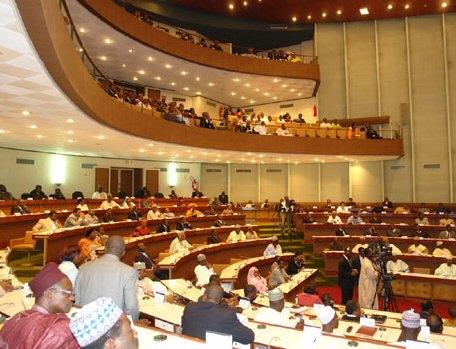Members of Parliament are scrutinizing changes to be introduced in the 2012electoral code as well as the execution of the 2011 and 2012 finance bills.
Members of Parliament are working on certain provisions of Cameroon’s electoral code adopted on April 19, 2012. Bill No 918/PJL/AN submitted to the constitutional laws commission by the Minister for Territorial Administration and Decentralization, Rene Sadi amends the amount to be paid as caution before running for the position of Member of Parliament. “This exercise is in line with the Head of State’s steadfast efforts to systematically modernize our electoral system”, said Mr Sadi. “After listening with keen attention to the concerns voiced by some MPs regarding the increase in the deposit required to run for parliament, the government has deemed it necessary to provide an appropriate response”. As a matter of what precedes, section 166 of the Electoral Code reduces the caution from CFA 3 million to CFA 1 million. The new amendment according to the Minister of Territorial Administration and Decentralisation “is designed to rationalize nominations and to maintain an amount that does not seriously undermine the financial capacity of citizens aspiring to political roles as MPs or senators”. Beyond the issue of caution, the minister took caution to explain that there is need for more reasonable time frames in certain cases. In this regard, and in line with the biometric system of registering voters, “a fourth sub paragraph has been added to section 84 to extend the period for distribution of voter cards, by specifying that in the event of recompilation, such distribution may take place once cards are issued”. Concerning senatorial elections for instance, the new Section 230 provides that “in view of the election of the senators, the electoral college shall be convened by the president of the Republic at least 45 days before the date of the poll, in accordance with the provisions of section 86(1), (3) and (4)”. Similarly, section 231 has been reshaped and now holds that “the nomination of candidates for the election of senators shall be conducted pursuant to sections 164 to 166 of this law”. Issues related to the nomination of candidates, objections, petitions relating to the rejection or acceptance of candidates, as well as those related to colour, initials or emblem adopted by a candidate or a list of candidates shall apply to the election of senators. The electoral board shall publish the list of candidates at least 15 days before the day of the poll. By and large, the amendments proposed by government provoked a stream of reactions from MPs. According to Hon Martin Oyono, “the changes are a worthwhile initiative aimed at increasing the number of candidates hoping to become parliamentarians and hence promote democracy in our country”. Yet, his counterparts of the opposition see bad faith in this move.Talking to the finance commission of the National Assembly, the minister of Finance, Alamine Ousmane Mey has presented bill No 919 pertaining to modifications brought to the 2012 budget by the President of the Republic in the course of the year. The minister explained that “the President of the Republic signed an ordinance on June 28, 2012 to raise the ceiling of government loans by CFA 250 billion francs, increasing it from CFA 200 billion francs”. An amount which he said “enabled the state during the 2012 financial year to have a larger debt margin in order to finance development projects such as the Yaounde – Douala superhighway”. Quizzed on the rational of this bill, the Minister of Finance as well as Members of Parliament explained that such ordinances must generally be submitted to National Assembly for ratification during session following their publication. In line with their thoughts, the bill’s explanatory statement holds that “the adoption of this bill will give force of law to the said ordinance, as provided for under Article 28 of the constitution”.The Minister of Finance equally submitted bill No 920/PJL/AN which focused on the execution of the 2011 budget. The budget which stood at CFA 2, 571,000,000,000frs was executed in an environment marked by a 3.8 per cent growth rate, 2.9 per cent household consumer prices and better use of the public investment budget.



